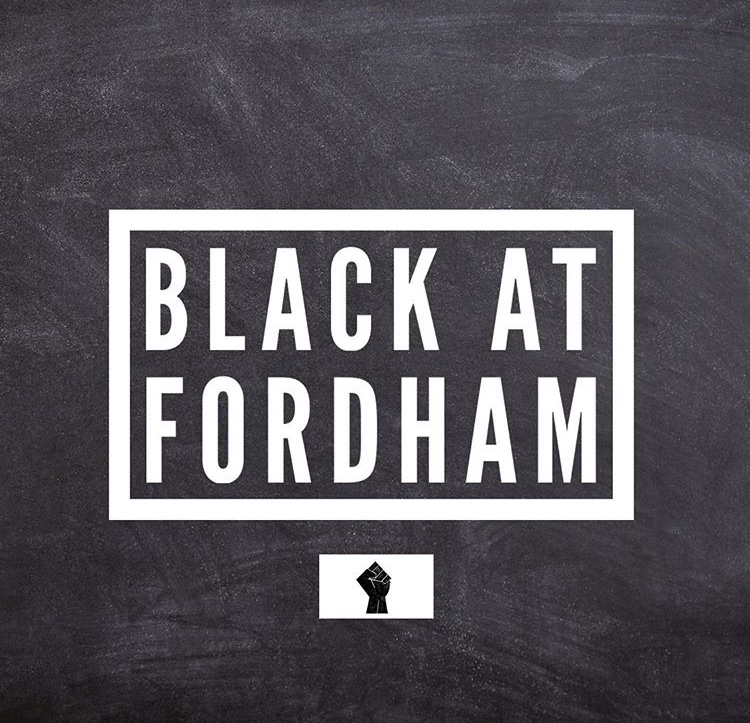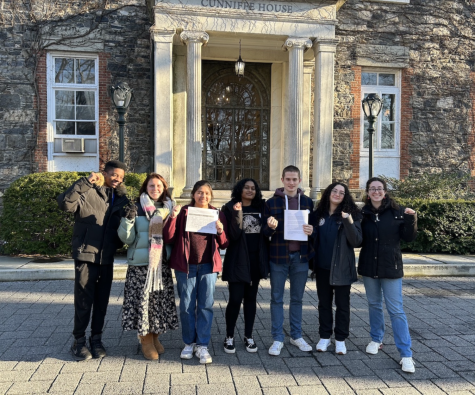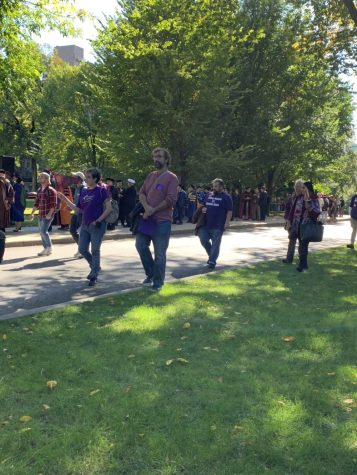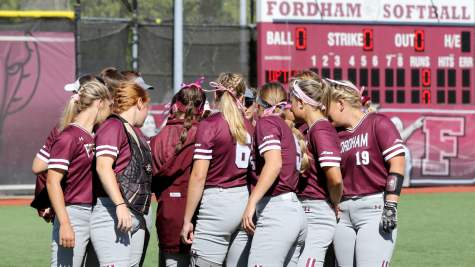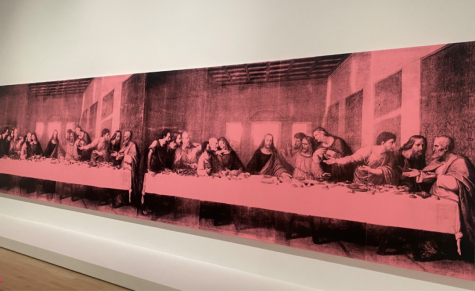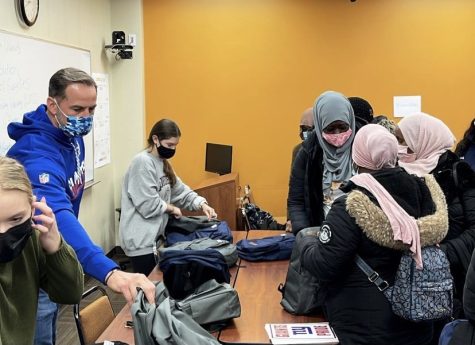Student Run Instagram Accounts Call out Racism At Fordham
Students are taking to social media to speak up about the racial prejudice they encounter at Fordham. Instagram pages @blackatfordham and @letstalkaboutitfordham post testimonials of the implicit and explicit racial biases they face, as well as instances of sexism, homophobia and other discrimination.
These pages, created over the summer, contribute to the national conversation about racial injustice set in motion by the killings of Black people at the hands of law enforcement. Black at Fordham and Let’s Talk About It Fordham were both created to highlight the voices of Black and Indigenous people of color (BIPOC) and other people of color (POC) students, according to their profiles.
Black at Fordham said their page was created to give Black students a voice in what can sometimes feel like an “All Lives Matter” environment.
“I want people’s voices to be heard, to be seen, but I also want action and I’m not going to stop until I see action,” they said.
Let’s Talk About It Fordham said they started the account to elevate students’ voices and “facilitate conversation about injustices on campus that promote a toxic and racist environment on campus.”
The individuals who run these accounts asked to remain anonymous.
As of Sept. 22, the Instagram page @blackatfordham has 4,807 followers and has posted 202 testimonials from students, alumni and faculty, opening up the conversation of race at Fordham. @letstalkaboutitfordham has 4,244 followers and 440 posts. These stories can be submitted either through direct messaging or by filling out a Google form in the page’s bio.
@letstalkaboutitfordham takes submissions regarding not only race but also anything discriminatory or unjust going on at Fordham.
“We were inspired by Manhattan College’s page, we mirrored their approach,” Let’s Talk About It Fordham said.
Black at Fordham said they focus specifically on racial issues on campus.
Many of the stories sent to them include instances in which individuals were singled out or made uncomfortable in the classroom because of their race. Other stories call out specific administrators and professors for problematic behavior, including Christopher Rodgers, assistant vice president and dean of students at Rose Hill.
Black at Fordham said they saw these allegations and stories about sexist and racist remarks made by Fordham administrators and were baffled that nothing was done to hold them accountable for their actions.
“If you look up Dean Rodgers, one of the first things that come up is an investigation on his sexist remarks,” Black at Fordham said. “That shouldn’t be the first thing I see, it’s just like, it didn’t sit well with me.”
Blackout Tuesday, which took place on June 2, was a collective action on social media to protest racism and police brutality. On Instagram, users participated by posting a photo of a black square alongside the hashtag #blackouttuesday. A common criticism was that users were being performative in their activism.
“I noticed some people were doing it just because they wanted to do it,” Black at Fordham said. “Some people did it because they want to prove a point that they weren’t racist, which in my opinion, I’d rather not post at all.”
Black at Fordham saw these performative posts and decided to take action.
“I was like, you know, I can’t just sit back and just see this and know that there is racism on campus,” they said. “It’s actually not okay at all. Everyone keeps talking about change, and we need change, and this and that, but we need action. And with action, then comes change.”
Let’s Talk About It Fordham hopes to get the attention of the Fordham administration to bring about change.
“We hope that Fordham begins to take student feedback and perspectives more seriously rather than just writing students off,” they said. “We hope that our concerns are met with concrete action.”
The Instagram pages grew very quickly. Within the first few days of creating the account, Black at Fordham said they already had thousands of followers. Deans and administrators have reached out to encourage the page to continue their work and use their platform to see that action is taken to change things.
Let’s Talk About It Fordham said the responses to what they post have been “great.”
“We’ve gotten a lot of ‘thank you’s and an increasing amount of submissions,” they said. “We’ve also received a lot of support from student alumni and the incoming class of 2024.”
Black at Fordham has also gotten a lot of attention from alumni students.
“People are fed up,” they said. “A lot of alumni that you get, like they’re hurting. They’re hurting, you know, and it’s taken them to this point, an Instagram account to be made for them to feel comfortable enough to express that.”
The two accounts said they often work together in determining what to post.
“We do ask each other questions relating to how to run our accounts once in a while. It’s a friendly and supportive connection,” Let’s Talk About It Fordham said. “We believe that both pages are needed.”
Fordham is a predominantly white institution. Black at Fordham said they are glad they started this account to give BIPOC a platform to speak up, but also for the white population at Fordham to see their stories and be confronted with the toxicity of their campus that they might not be exposed to or turn a blind eye to.
“That’s the start of change, in my opinion,” they said. “That’s the start, having those [white people] seeing and understanding. Maybe not understanding, but seeing.”
Other universities, including Fairfield University and Georgetown University, have created their own Instagram pages modeled after Black at Fordham. The account manager said they want to continue the page after they graduate to keep the conversation going and to hold the administration accountable.
Let’s Talk About It Fordham also said they want to keep the conversation going, and not just about racism.
“We will continue to share stories,” Let’s Talk About It Fordham said. “Once submissions begin to die down and more concrete steps are taken to address racism and anti-Blackness, we want to push for changes regarding CPS, Title IX, the dissolution of the Dorothy Day Center for Justice, among other issues.”
In his email to the Fordham community on June 29 addressing the demand for Fordham’s response to racism and injustice at the university, Rev. Joseph M. McShane, S.J., president of the university, acknowledged seeing the Instagram posts from the Fordham community.
“We have all been moved and dismayed by these statements and testimonials, and deeply saddened by the trauma that prompted them,” the email read. “Therefore, it is clear that the national awakening has come to Fordham … this moment has made it clear that we can and must do more.”



































































































































































































